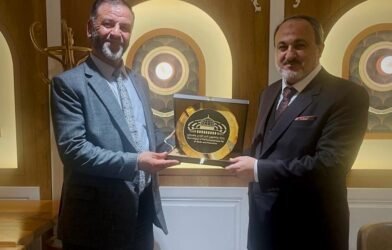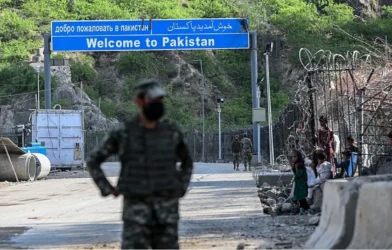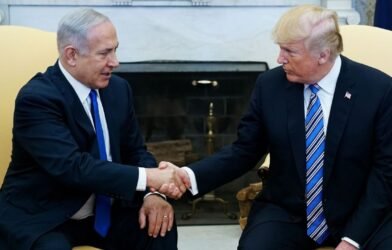Subtotal $0.00
- The Military and the Rohingya Grievance
- A Democracy of Disenfranchisement
- Rohingya and Chinese interests
in Myanmar A standardized narrative prevails that there is no such thing as a Myanmar minority as "Rohingya"and that the Muslims of theArakan"(or "Rakhine" as they are officially called) are actually outsiders to Myanmar who came from Bangladesh and that it was time for them to leave the country after filling it with violence and blood.
In light of the military's control over the country, it is understandable that it wants to keep the tension alive to justify its great influence and its need for more support and funding, which means more security and military control over the entire country, not just in Rakhine.
The Military and the Rohingya Grievance
Therefore, it was important for the military to play on contradictions, spread hatred, and awaken the fear of the spread of Islam and the decline of Buddhism, claiming that the Rohingya are the vanguard of Muslims who want to transform the country's identity and Islamize its people, despite the fact that this minority - according to what the government claims - does not exceed 4% of the population.
Perhaps the most important aspect of this discourse is the desire of Rakhine Muslims to Ethnic cleansing The regime's narrative is that they are a non-indigenous minority that is alien to the state, despite evidence of their presence in the region since the ninth century AD, thus denying them any right to a state of their own. Self-determinationAccording to international conventions.
| “ Perhaps the most important aspect of Myanmar's military rhetoric is the desire of the Arakanese Muslims to carry out ethnic cleansing in the region so that they can secede from Myanmar to join Bangladesh or form their own state, despite the fact that, according to the regime's narrative, they are a non-indigenous minority and strangers to the state, despite evidence of their presence in their region since the ninth century AD “ |
Arakan is characterized by a lack of development and poor services, an atmosphere conducive to the spread of ethnic and religious extremism to distract attention from the authorities' failure to develop the region and improve the lives of its Rakhine population -who are Buddhist and are The majority- and Rohingya Muslims.
The Rohingya are pitted against the Rakhine majority despite their shared marginalization, exclusion, and poor services; neither the government recognizes them as indigenous citizens nor their Rakhine partners, whom they call "Bengalis," a label the Rohingya vehemently reject because it denies them their natural right to citizenship.
Through a systematic official policy, the Rohingya have been deprived of official papers that could prove that they are citizens of Myanmar. The policy of verifying the origin of the population has generally deprived the Rohingya of their national rights, turning them into stateless beings with three bitter options:
Either stay in mass incarceration camps or die, or Displacement outside their home country, or Asylum to armed action, which in turn would be an opportunity for the military to use grossly disproportionate force against them, and an invitation to further control not only the region but Myanmar as a whole.
A Democracy of Disenfranchisement
The West was keen for Western-inspired democracy to spread across Asia, and exerted years of pressure on the military regime that ruled Myanmar directly from 1962-2011, eventually leading to elections in 2015 in which the opposition, Aung San Suu Kyi's National League for Democracy party, won and Htin Kyaw was appointed as the first democratically elected president.
However, the West was then concerned not with the values and civil rights of Myanmar's population, but with the commercial interests and huge investments that Myanmar promised if it became a more open country, which gradually began to give way to a moralizing discourse with the advent of the Myanmar government. China on the line and expanding dramatically in the country.
It is true that democracy brought Suu Kyi to power despite constitutional impediments, but the deep state - built by the military regime over decades of one-party rule and formal elections - is still the de facto ruler and still controls the press, media, and guidance platforms.
| “ Prime Minister and former opposition leader Suu Kyi insists on ignoring the existence of the Rohingya, let alone considering a solution. This is in line with the traditional official position adopted by the military and seems to be the dominant view inside the country, except for a few voices such as the Myanmar Human Rights Network (BHRN) “ |
It is a situation that reminds the Arab reader of the period when President Mohamed Morsi EgyptThis means that Suu Kyi and her party will have to work for a very long time to get rid of the influence that has infiltrated the state, if they are sincere in their intentions
Perhaps her interview with journalist Meshal Hussein onBBC"in October 2013, and her racist anti-Muslim comment shortly afterward: "No one told me that a Muslim was going to interview me" (which she said without realizing the camera was still rolling); questioning her neutrality and her stated desire to work towards building a multi-ethnic democracy.
Throughout the interview, Suu Kyi insisted on ignoring the existence of the Rohingya, let alone considering a solution to their plight. This is in line with the traditional official position adopted by the military establishment and seems to be the prevailing view inside the country, except for a few voices such as the Myanmar Human Rights Network (BHRN).
In its report "Persecution of Muslims in Myanmar" published this year, the network revealed horrifying chapters of what Myanmar's Muslims are subjected to, including denial of national identity, preventing the opening of closed mosques and the rebuilding of destroyed ones, and forced displacement from villages and turning them into Muslim-free villages.
Since independence, Myanmar has lived in a state of internal instability due to ethnic differences, with a group of large ethnicities, led by the Myanmarese, and small groups of ethnicities dominating more than a hundred other ethnicities, which brought the country into a state of constant turmoil that led to military rule, which made it worse.
The situation exploded in 1988 with a student revolt that left some 3,000 people dead. Suu Kyi gained fame as the daughter of the country's former leader and the leader of the opposition at the time. house arrest for decades until the military finally succumbed to pressure to hold democratic elections that brought it overwhelmingly to power.
What gave her this overwhelming victory was that large segments of the population, including Muslims, pinned great hopes on her to change their bitter reality, but they were greatly disappointed after her election by her direct abandonment of their cause, especially the Rohingya issue.
Rohingya and Chinese interests
If we look at the map of China and its position in Asia, we can understand the Chinese position, which has traditionally supported the Pol Pot regime in Cambodiaand the Kim Jem-il regime in North Koreaand the military regime in Myanmar, which is China's backyard and once espoused a leftist ideology.
A few days ago, the Chinese government's special envoy Sun Guoxiang visited the Burmese capital, where he met with the vice president and expressed solidarity with the Myanmar government against the "terrorist attacks" carried out by the Arakan Rohingya Liberation Army (ARSA) that targeted Myanmar soldiers, ignoring the hundreds of thousands of Muslims who took refuge on the Bangladesh border in extremely bad conditions and reinforcing a statement made earlier in August by the Chinese Foreign Ministry spokesperson that he understood the Burmese government's right to maintain security and stability in Arakan Province.
| “ China's biased stance against the Rohingya is not only due to ideological and historical considerations, but also because China is betting on the stability of Myanmar, especially the Arakan region, which is the main entrance to the Bay of Bengal and where Beijing is building billions of dollars in investments through a project called "One Belt, One Road" “ |
The Chinese position is not only based on ideological and historical considerations, but also because China is betting on the stability of Myanmar, especially the Rakhine region, which is the main gateway to the Bay of Bengal. Beijing billions of dollars in investments through a project dubbed "One Belt One Road" (OBOR).
Part of the project crosses the Sino-Burmese border in the northeast and ends on the shore of the Bay of Bengal, cutting a trade and energy route that normally follows the Malacca Corridor between Malaysia and Indonesia until it reaches the South China Sea.
There is an economic zone on Ramree Island and the Kyaukphyu deep-sea port to which Chinese energy lines reach, which prompted the Myanmar government to appeal to China to stand with it to solve the Arakan issue in accordance with international norms, which actually means providing it with protection in international institutions, especially the Security Council, as stated by the spokesman for the Myanmar presidency.
It can be said that the desire expressed by Islamic governments to change the status of Muslims in Myanmar is difficult to achieve by simply pressuring the new government or the military elite that actually governs the country. Rather, it is necessary to work closely with the Chinese who are truly affected by the instability in the region and who fear any political or military change that could harm their projects and always attribute its occurrence to their conflict with the United States of America.
The Chinese are often very pragmatic when it comes to their interests, and convincing them that the right way to stabilize the situation in the region is to accommodate Muslims as a positive and constructive force in Myanmar, grant them their national rights, and raise the country's economic level by spreading and consolidating development, so that its people are secure about its future and ethnic strife recedes.











